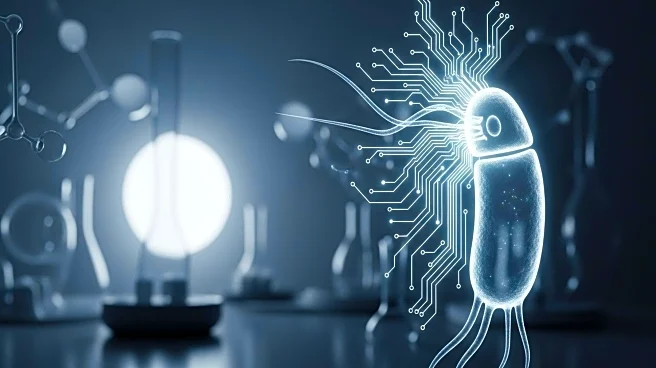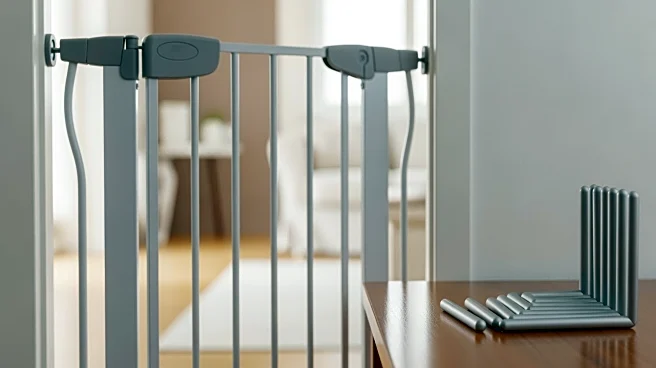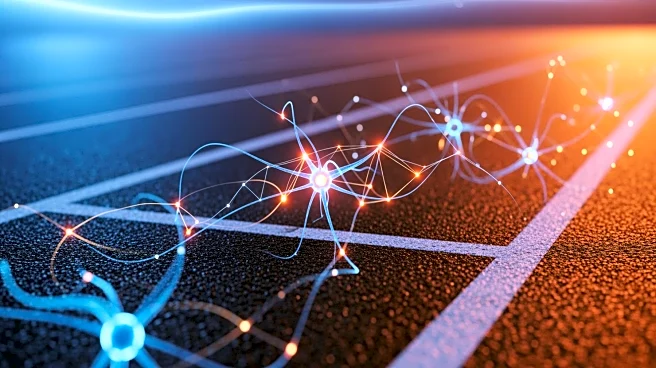What's Happening?
Researchers at Trinity College Dublin have discovered that electrical stimulation can 'reprogram' human macrophages to reduce inflammation and promote faster healing in various disease and injury contexts. The study, conducted in vitro using macrophages from healthy donors, demonstrated that electrical stimulation encourages an anti-inflammatory, pro-regenerative phenotype. This process decreases inflammatory markers and enhances the expression of angiogenic genes, which are crucial for tissue repair. The findings suggest that electrical stimulation could be a promising therapeutic strategy to modulate macrophage activity, potentially improving patient outcomes by reducing chronic inflammation and promoting effective tissue regeneration.
Why It's Important?
The discovery of electrical stimulation as a method to modulate macrophage activity holds significant implications for medical treatments. Macrophages play a critical role in the immune system, particularly in tissue repair and inflammation control. By shifting macrophages to a regenerative phenotype, this technique could address chronic inflammation issues that lead to pathological fibrosis and organ failure. The potential to enhance tissue repair processes could benefit patients suffering from various inflammatory diseases, offering a new avenue for therapeutic interventions. This approach could lead to safer and more effective treatments, reducing the need for aggressive anti-inflammatory drugs and their associated side effects.
What's Next?
The research team plans to explore advanced electrical stimulation regimes to achieve more precise and prolonged effects on inflammatory cells. They aim to investigate new materials and methods for delivering electric fields, potentially expanding the application of this technique to a broader range of inflammatory diseases. Future studies will focus on understanding the mechanisms behind macrophage modulation and validating these findings in vivo, which could pave the way for clinical applications. The researchers are optimistic about the translational relevance of their findings, given the use of human blood cells in their experiments.
Beyond the Headlines
This breakthrough in macrophage modulation through electrical stimulation could lead to significant advancements in regenerative medicine and tissue engineering. The ability to control immune responses and enhance tissue repair could transform treatment strategies for chronic inflammatory conditions. Ethical considerations regarding the use of electrical stimulation in medical treatments will need to be addressed, ensuring patient safety and efficacy. Long-term, this research could influence the development of new pharmaceutical targets for macrophage modulation, offering innovative solutions for managing inflammation-related diseases.








